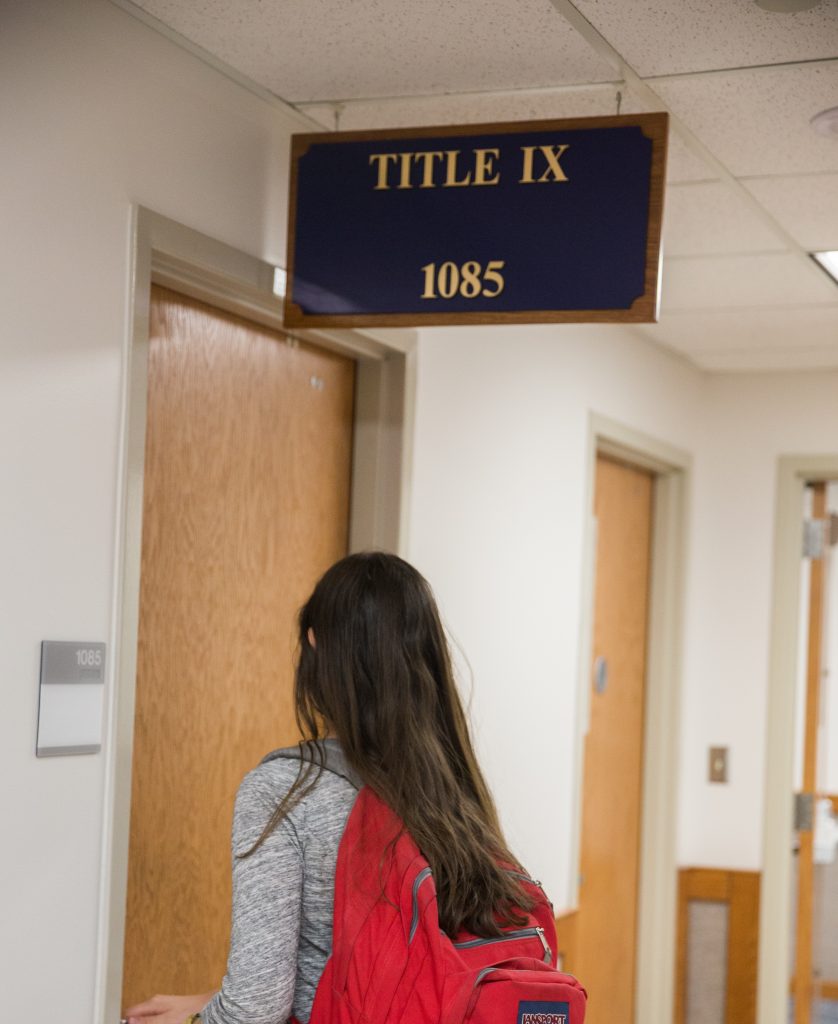
BYU officials have yet to determine how a new Title IX Final Rule will go into effect on campus.
The controversial new regulations, announced by U.S. Secretary of Education Betsy DeVos on May 6, include a new definition of sexual harassment; new provisions to the reporting, response and investigative processes; and a narrowed scope of cases that fall under Title IX jurisdiction.
Universities are required to comply with the new regulations, known as the “Final Rule,” by Aug. 14.
BYU Title IX Coordinator Tiffany Turley said the Title IX office is actively working on implementing the new rules on campus, though they have not yet nailed down any specifics.
“There will inevitably be aspects of our process that change, and the university will do everything required to ensure compliance with the Final Rule,” she said. “What exactly that looks like though is yet to be determined.”
Turley said the Title IX office is unable to address whether it will remain responsible for cases of sexual misconduct that occur in off-campus housing, on study abroad programs, or in cases where the accused is not a BYU student. The Title IX office has also not yet determined whether it will use the “preponderance of evidence” standard or the “clear and convincing evidence” standard, nor has it addressed whether BYU coaches will be required to report incidents of sexual misconduct.
The Final Rule defines sexual harassment as “any instance of quid pro quo harassment by a school’s employee; any unwelcome conduct that a reasonable person would find so severe, pervasive and objectively offensive that it denies a person equal educational access; (or) any instance of sexual assault, dating violence, domestic violence or stalking.”
The new regulations also require live hearings for cases of sexual assault or misconduct, in which cross-examination of both parties is facilitated. Accusers and the accused may not directly cross-examine each other; they must appoint “advisors” to perform the cross-examination. Either party may also request to hold the hearing in separate rooms, connected by video chat, instead of meeting in person.
“Too many students have lost access to their education because their school inadequately responded when a student filed a complaint of sexual harassment or sexual assault. This new regulation requires schools to act in meaningful ways to support survivors of sexual misconduct, without sacrificing important safeguards to ensure a fair and transparent process,” Secretary DeVos said in a press release. “We can and must continue to fight sexual misconduct in our nation’s schools, and this rule makes certain that fight continues.”
Proponents of the Final Rule view the changes as a restoration of due process, while opponents worry the changes will increase protections for the accused at the expense of victims.
S. Daniel Carter, president of Safety Advisors for Educational Campuses, LLC, said the new regulations do not foster moral, political or legal trust within the academic community.
“Ultimately the overly complex and prescriptive system the Title IX regulations would establish will harm everybody involved — complainants, respondents, institutions and the safety of educational programs,” he said.
He also said Secretary DeVos overstepped her jurisdiction by creating the Final Rule, assuming legislative and judicial responsibilities that are not part of her job. “Legal challenges have been promised on these grounds. The regulations may not take effect in August or ever.”
Turley said more information is forthcoming as BYU finalizes decisions regarding the implementation of the new Title IX on campus.




